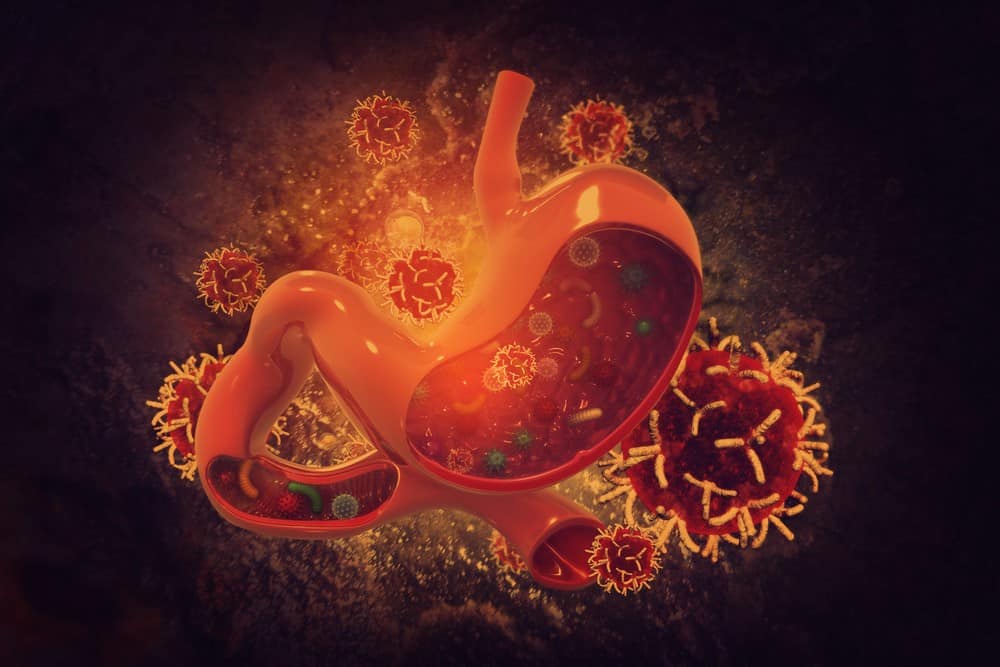Stomach cancer is characterized by an accumulation of abnormal cancerous cells within the inner lining of the stomach. It is difficult to diagnose stomach cancer as most as its symptoms don’t show in the earlier stages. It is difficult to diagnose stomach cancer as most of its symptoms don’t show in the earlier stages. You can consult the professionals like icrmc.org because they know how to uncover the underlying causes of your health problems through careful history taking, physical examination, and lab testing.
According to the U.S. Food and Drug Administration, there are some medicines such as ranitidine with a brand-name drug Zantac contains NDMA at low levels.
Ranitidine is an H2 (histamine-2) blocker that is related to Tagamet, Pepcid, and Axid, it reduces the amount of acid produced by the cells in the stomach.
NDMA is also known as N-nitrosodimethylamine which is nitrosamine impurity. It is classified as a substance that could cause cancer (probable human carcinogen) according to the study results from laboratory tests.
Several individuals have filed stomach cancer lawsuits against medicines such as Zantac. Such is the impact that many victims filed for Zantac cancer lawsuits.
Risk Factors Of Stomach Cancer
Risk factors that increase the chances of developing stomach cancer or tumors in the stomach include certain diseases and conditions, such as:
- pylori bacterial infections, it can sometimes lead to ulcers
- Lymphoma, a group of blood cancers
- Stomach polyps, it causes the abnormal growths of tissue in the stomach
- Tumors in other parts of the digestive system
Stomach Cancer Is Very Common Among:
- Men
- Individuals with a family history of the disease
- Aged adults (generally people 50 years and older)
- Smokers and drinkers
- People from a particular region – Belarusian or South American descent, Asian- especially Japanese or Korean
Certain lifestyle factors may impact your risk of developing stomach cancer, you are more likely to get this disease if you:
- Don’t exercise regularly
- Have a history of alcohol abuse
- Eat too much meat products
- Don’t store or cook food properly
- Eat a lot of salty or processed foods
If you believe you’re at risk of developing stomach cancer, you must consider getting a screening test done by professionals.
Symptoms Of Stomach Cancer
Stomach cancer can show various symptoms that may not appear in the early stages. Therefore, the majority of people do not receive a proper diagnosis of stomach cancer until the disease is already advanced.

Symptoms Of Stomach Cancer In Early-stage Include:
- Vomiting, which may contain blood
- Heartburn
- Pain in the breastbone
- Feeling bloated after meals
- Swallowing difficulties
- Stomach ache
- Frequent burping
- Indigestion that does not resolve
- Trapped wind
- A sensation of being very full during meals
However, most of these symptoms are very similar to other less serious diseases. However, one must seek prompt medical treatment if he experiences difficulty in swallowing.
You May Experience The Following Symptoms In The Advanced Stage Of Stomach Cancer:
- Extreme weight loss
- Loss of appetite
- Black stools that contain blood
- Excessive fatigue
- Constant bloating
- Jaundice
- The stomach feels lumpy to the touch because of the buildup of fluid.
How Is It Diagnosed?
Stomach cancer is often not diagnosed until it becomes serious as most of the people rarely show its symptoms in the early stages.
To make a diagnosis, a doctor may ask about the common symptoms, medical history, family history, daily lifestyle, etc.
They will perform a physical examination to analyze any abnormalities such as stomach lumpiness or tenderness.
These Tests May Include The Following:
CT Scan
A CT scan provides the multi-angle detailed images of the particular regions inside the body. To perform this test, the doctor might ask to swallow some liquid or directly inject that in the body. This liquid produces clear images of the affected areas.
Upper Endoscopy
An endoscope enables a specialist to check inside the lining of the stomach. It is used to examine the duodenum, stomach, and esophagus.
If there are any doubts about possible cancer cells, the doctor will perform a biopsy to collect the damaged tissue samples from the affected area and send them to a laboratory.
Barium Swallow
Barium helps to identify any anomalies during an X-ray. Before the test, the doctor asks the individual to swallow a liquid (barium) that lines the inner lining of the stomach and esophagus.
Prevention
There is no way to prevent stomach cancer entirely. But, you can lower the risk of cancers by:
- Exercising regularly
- Quitting smoking and drinking
- Eating a balanced, low-fat diet
- Maintaining a healthy weight
In some particular cases, doctors prescribe medications to lower down the risk. You may consult with your doctor for an early screening test. It may include
- Imaging procedures
- X-rays
- Ct scans
- Physical exam
- Blood test
- Urine tests
- Genetic tests
Conclusion
The earlier you diagnose stomach cancer, the better are the chances of your recovery. More than 30% of people survive at least five years after being diagnosed.
Proper treatment prevents the cells from further spreading of the stomach to the liver, bones, lymph nodes, and lungs. The treatment plan depends on the origin and stage of cancer.
It May Include:
- Surgery
- Radiation therapy
- Chemotherapy
Immunotherapy, such as vaccines and medication




